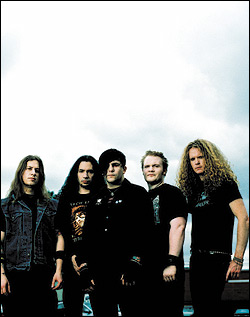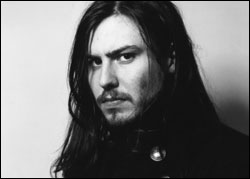Braid weren’t the band that made me give up on poetry, but they really, really liked the one who did, which almost justifies this highly tangential “living epitaph” to accompany their ballyhooed reunion tour. I should clarify right away that the notion of me “giving up on poetry,” circa 1999, is rather disingenuous; while my post-undergraduate, oh-shit-what-do-I-do-now phase produced a healthy appreciation of smart, aggressive loner-indie, I still regarded Stone Temple Pilots’ meditation “When the dogs begin to smell her, will she smell alone?” as advanced rhetorical thought. To suggest that, say, Patti Smith was “on my periphery” would be not just a misrepresentation, but a bald-faced lie. And I was an English minor, for God’s sake.
Luckily, like most intellectually curious post-teens (is “post-” the best prefix ever or what?), my heart was in the right place: on my fuckin’ sleeve! And 1999 wrought a scary abundance of inner sleeve diag–noses. I analyzed every symbol and simile in my fast-expanding collection for anything that would mirror, or simply empathize with, my tumultuous personal failings, usually of the—cough, cough—romantic persuasion. Once it became clear that Trent Reznor was not going to sequelize Pretty Hate Machine, I had nowhere to turn but the dreaded emo-core subset of post-punk.
Intrigued by the wealth of young lyricists who “got” what I was “going through” as a healthy, young, middle-class white male with girl problems (apologies if the blown chunks have rendered this print illegible), I picked up the last two major-label albums by, not Braid, but Braid’s obvious unspoken mentor, Jawbox, aka Fugazi’s obvious unspoken protégé. Not content with conventional emo-speak, Jawbox vocalist J. Robbins employed a vernacular rife with 50-cent words (not including “wanksta”) like “autodidactic,” “excandescent,” and “reify,” to better convey his incoherent wussitude. This put me at a crossroads. I would either pore over every facet of this deeply infuriating linguistic codification until I achieved enlightenment, or plummet back to the dark netherworld of scribbling NIN lyrics on notebook margins.
Eventually, something shorted out upstairs. It plagues me to this day; when the Mars Volta’s Cedric Bixler bleats “transient jet lag ecto-mimed bison!” I feel like Nicholson at the end of Cuckoo’s Nest: “Voice pretty! Duhhhhhhh!” Sure, Bixler’s singing about his beloved friend’s hallucinations in a coma state, not chicks; but in the terrible wake of the Jawbox Incident, I needed a press release to figure that out. My ability—and, to a large extent, desire—to deconstruct figurative language was forever crippled. (Beating a reader to death with it via rock writing, on the other hand, is totally different!)
This brings us, believe it or not, to Braid. Jawbox left me in such a conflicted state of simultaneous admiration and contempt for Robbins’ lyrics that I weakly wished for a less challenging equivalent. And calling Braid that very thing is, trust me, not an insult. Both bands’ approach—that shard-sharp staccato, classic D.C. punk waltz—never failed to compel me. Mind you, I didn’t “get” the compositional aspects too bloody well either, but in a much more tangible, literal way. Braid specialized in the kind of arcing guitar figures that I couldn’t mimic even with tablature right in front of me, buoyed by a warm, crisp rhythm section that somehow got my dancing shoes crackin’ like the umbrella dude from Outkast. Even better, frontman Bob Nanna was just what the doctor ordered: an acerbic, honest, first- person romantic who wasn’t whiny or needy. His lyric inserts would’ve been prime bathroom reading material in another era. Alas, by then I had moved on.
Goofin’ aside, maybe that’s why this whole reunion tour shebang doesn’t register as strongly with me as it does the many other borderline anorexic, horn-rimmed mouth-breathers—my homiez—who will be losing their shit with every cymbal crash. Braid were consistently very, very good and even sorta influential, albeit from a branch halfway down the post-punk/emo-core family tree; they simply weren’t transcendent. Again, not a dis; that word’s reserved for Drive Like Jehu’s second coming.
Braid cranked out three full-lengths on three different labels, a posthumous odds-and-ends double, and a final-show live album, all of which I like the holy hell out of. I used to rank their successive releases—chronologically, the unfortunately titled Frankie Welfare Boy Age Five, The Age of Octeen, and Frame and Canvas—in that order of ascending quality, but recent spins have generated an about-face. Frankie is a 26-song opus that one can legitimately say was ahead of its time; what sounds like single-take explosions erupt around radio dial static, in which one can just barely make out snippets from similarly reputable post-punk players of the time. The band were rabid and unpretentious—they later covered Naked Eyes’ “Always Something There to Remind Me,” not as parody, but reimagined as a Braid song.
Nanna and Chris Broach’s Quidditch-like guitar duels inevitably “matured,” and the ride stalled outright when Broach left in 2000 and the survivors rechristened themselves Hey Mercedes—i.e., n’yeh emo-pop. Surprisingly, Nanna’s narratives haven’t suffered. His uncommonly charming Britpop observations are just as intoxicating now (“Sarah slides up the bar and orders me”) as they were in 1994 (“John, you have an uncompromising way of making everything I say sound sexual”). I’m not sure if that’s poetry, but I understand exactly what he’s talking about.
Braid play Graceland at 7 p.m. with Recover, Moneen, and Limbeck. Tues., July 13. $12 adv.







